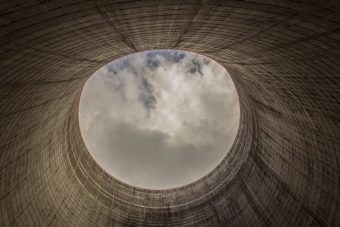Ghana’s current energy mix is primarily based on hydropower and thermal power plants that use gas and petroleum derivatives. Hydropower has traditionally been considered a stable and relatively inexpensive source of electricity in this West African country, while growing electricity demand is increasingly incorporating thermal capacity based on natural gas and oil.

According to GlobalData analyses, hydropower capacity accounted for 15.4 percent of total global power installations in 2023 (1,407 GW), and it is expected to reach 10.9 percent by the end of 2030, with total capacity increasing to 1,562 GW. Of this global hydropower capacity, only 0.11 percent belongs to Ghana. Currently, Ghana is planning several major hydropower projects to strengthen its energy mix: the Akosombo hydrokinetic plant (100 MW) in Eastern Ghana, the Lanke hydropower plant (95 MW) in the Upper West region, the Juale hydropower plant (90 MW) in the northern part of the country, the Ntereso plant (64 MW), also in the Northern region, and the Hemang plant (60 MW), which is expected to be operational by 2025.
New Initiatives in Ghana’s Energy Sector
In recent years, Ghana has been actively working on introducing nuclear energy. In September 2023, Nuclear Power Ghana officially announced that the Nsuban site in the Western Region had been selected as the primary location for the country’s first nuclear power plant, while the Obotan site in the Central Region was proposed as a backup.
More:
- Belgium Reverses Its Nuclear Phase-Out Policy
- Bulgaria Aims to Become the First Country in Europe with a Functional AP1000 Reactor
- Czechia Updates National Climate and Energy Plan: Focus on Renewable Energy and Nuclear Power
First IAEA Mission to Ghana for Site Assessment
Last week, Ghana hosted its first-ever IAEA mission of this kind, with four experts from Pakistan, Turkey, the United Kingdom, and the United States visiting the country. The mission was conducted at the request of the Ghanaian government and was hosted by Nuclear Power Ghana.
The IAEA team reviewed the site selection methodology, including the selection report, collected data, and applied criteria. Experts visited the designated site in the Western Region and the backup location in the Central Region to ensure that these proposals meet safety requirements. Their assessment covered seismic risks, potential flooding, extreme climate conditions, and the necessary infrastructure for emergency response plans, as reported by World Nuclear News.
The final report on the mission’s findings is expected to be submitted to the Ghanaian government within the next three months, while the IAEA will continue to provide advice and support throughout the permitting process for the future nuclear power plant.
If everything proceeds as planned, Ghana could become one of the first countries in West Africa with a large-scale nuclear facility, significantly contributing to economic progress and energy independence in the region.
Energy portal



